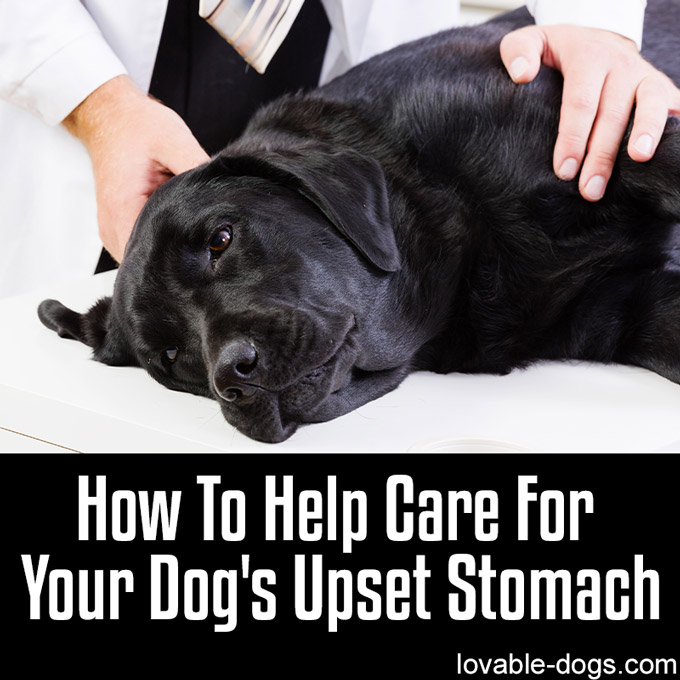
How To Help Care For Your Dog’s Upset Stomach – Image To Repin / Share
Photo – © Serg Nvns – Fotolia.com
We found a great article all about taking care of dogs with stomach upset. The link follows after our introduction to the topic.
Also known as gastritis, stomach upset is a condition that is characterized by the inflammation of the stomach that triggers vomiting and other discomforts. Affecting the dogs and cats, the occurrence of upset stomach is normally caused by dietary indiscretion i.e. eating something bad. Some dogs and cats ingested inappropriate foods which can either be raw or spoiled. Sicknesscan also be triggered by the consumption of non-food items such as foreign objects, plants, cat litter, garbage, table scraps or leftovers. [1] Other possible causes include changes in the dog’s diet, injury on the stomach area, stale food intake, and of course, parasites such as worms. [2]
Occasional upset stomach in dogs is pretty normal. When the stomach is upset, dogs experience a number of clinical signs which include vomiting, nausea, and even diarrhea. Other symptoms may include hard, painful or distended belly, appearance of blood in feces, urine and vomit, difficulty in defecating, lethargy, and dehydration. Some dogs experience bloating, gas, dry heaving, fever, and thirst. [2]
It is not generally considered essential to seek for medical attention every time your dog experiences tummy trouble. There are a number of simple yet effective ways on dealing with stomach upset even at home. In many cases, a simple stomach upset does not necessarily require vet’s attention, unless there are symptoms which can be considered as life-threatening. For instance, if vomit contains blood, it could be a sign that a vet’s help is badly needed.
Some of the treatment methods listed includes fasting for 12 to 24 hours, availability of fresh and clean water, and giving a bland diet. [3] If the condition becomes chronic, several tests need to be undertaken in order to identify the root cause of the problem. These tests may include urinalysis, endoscopy, abdominal ultrasound, blood tests, and abdominal x-rays.
When diagnosed, veterinarians may recommend a number of solutions or treatment methods which include the use of gastrointestinal protectants, anti-vomiting or anti-emetic medications, intake of H2 receptor antagonists, or proton pump inhibitor for severe cases of stomach ulceration. [1]
Ok here is the link to the full tutorial: http://www.caninejournal.com/cure-dogs-upset-stomach/
References:
[1] http://mypeted.com/pet-health/articles/gastritis-upset-stomach-in-dogs-and-cats/ (via web archive)
[2] http://raisinghealthydogs.com/upset-stomach-in-dogs-causes-and-cures

